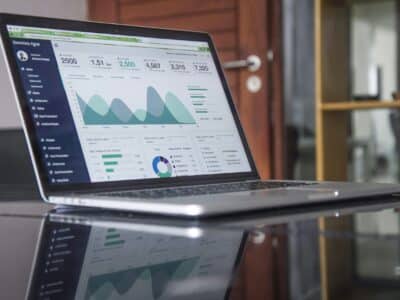Your retail business needs to monitor customer behavior, track inventory, and strategically plan. In the digital age, this means leveraging your data. This leads us to the question of what are the ways that analytical data benefits retailers?
Table of Contents
What Are Ways That Analytical Data Benefits Retailers?
Understanding Customer Behavior
Page views, clickthrough rate, and the customer’s shopping experience are the data the retail industry has wanted for millennia. Knowing how customers behave on your web pages is integral to running a successful business. With data analysis this is possible. The simple conclusion? You need data to inform decision-making: from customer service experience to designing effective marketing campaigns.
Understanding Sales Data
Which products are your best sellers? What is not performing well, do you need to offer these products at all, or do their product pages and your marketing strategies need optimization? Consolidated data platforms answer these questions. Using artificial intelligence and machine learning capabilities, analytic software can now provide actionable insights based on sales data to inform smarter decision-making, ensuring your inventory reflects the best ROI for your business.
Strategic Business Planning
With their data analyzed, retailers can identify key trends as well as monitor key performance indicators (KPI) and ensure that the decisions they are making for the future of their business are in line with reality. Ranging from using predictive analytics to understand what their stock might need to analyzing google reviews to understand how their customers are feeling: this is key to a successful business.
Why Should Retailers Use Analytical Data?
Understanding consumer behavior is the heart of retail. Every market stall owner has tried to figure it out since the beginning of trade, and it continues to be the main issue troubling businesses today.
Below are 3 good reasons to use data analysis in your retail operation.
Your Competitors Are Using It
Getting started with retail analytics is not getting ahead and it is catching up. Your top competitors have been using it for years, and your close competitors are catching up.
Using analytics in retail isn’t optional. Small businesses must use every advantage they have, and data is the most important one. Interested in how businesses can leverage analytics? Read our blogs for more information.
Descriptive and Predictive Analytics are the Essentials and Future of Sales Respectively
The descriptive analytics field focuses on what you can learn from your company’s sales results, customer behavior patterns, responses to marketing strategies, and more. Predictive analysis extrapolates trends and patterns to help decision-makers understand how confident choices will affect performance. Both are critical for your success. These tools can help you understand the why, when, where, who, what, and how of purchasing behavior.
Retail Runs on Tight Margins — Give Yourself Some Space
Using data to optimize your operation means freeing up small parts of your budget to cover unexpected losses or save towards expanding your business potential. Giving your business financial freedom is the goal, why not use technology to help you there?
Wrapping Up
dbSeer is passionate about helping you level up your business using analytical data. We know, and understand, that data means power. Just having the tools does not mean you’ll be successful; our team is the key to unlock your success. We can help identify the right tools, and then offer our expertise and guidance to properly apply the tools for your business. Speak to our team from dbSeer to get started.




